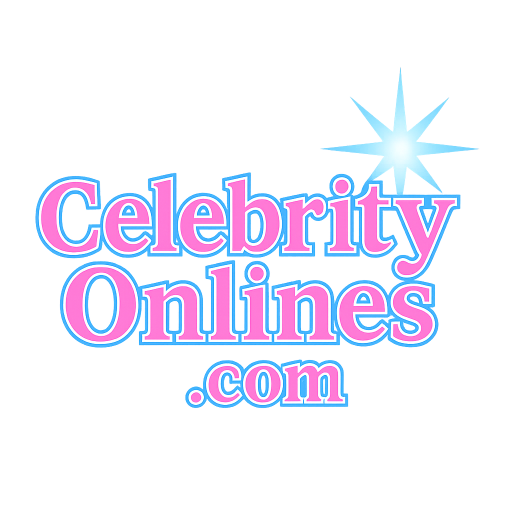When Woody Met Donny
In a Hollywood twist stranger than fiction, Woody Allen recently resurfaced in the headlines — not for a new movie (he insists there may never be another), but for praising Donald Trump’s acting chops. Yes, you read that right: Woody Allen, arthouse cinema’s most controversial auteur, is reminiscing about the time he directed the man who would later become the 45th and 47th President of the United States.
The unlikely collaboration happened in 1998, in Allen’s satirical film Celebrity, where Trump played himself in a cameo. His “role”? Pitching a plan to bulldoze Manhattan’s iconic St. Patrick’s Cathedral to make way for — wait for it — an office tower. Life imitating art, or art imitating Trump? You decide.

“A Pleasure to Work With”
Speaking on Bill Maher’s Club Random podcast, Allen leaned into nostalgia.
“I’m one of the few people who can say I directed Trump,” Allen mused. “He was a pleasure to work with and a very good actor.”
The director even praised Trump’s professionalism on set: “He was very polite, hit his mark, did everything correctly, and had a real flair for show business. I only wish I could direct him now. If he would let me direct him as president, I think I could do wonders.”
It’s a bizarre sentiment from a man who insists he’s “not a Trumper” and claims he voted for Kamala Harris. But for Allen, politics was beside the point. What mattered was that Trump showed up, took direction, and played himself convincingly — which, some would argue, has been his greatest role all along.
The Irony of Casting Trump
Trump’s cameo in Celebrity wasn’t out of the blue. By the late 1990s, Trump was a fixture in New York’s celebrity circuit — courtside at Knicks games, hosting beauty pageants, and popping up in cameo roles from Home Alone 2 to The Fresh Prince of Bel-Air.
Allen casting him was less a gamble and more a reflection of the era: a Trump appearance was shorthand for “wealthy, flashy, Manhattan elite.”
But Allen admitted on Maher’s show that he was surprised Trump abandoned the comforts of that life for politics: “He had everything — Knicks games, golf, beauty contests. Why give it up for politics, which is nothing but headaches and critical decisions and agony?”
One can almost hear Allen sighing into his espresso: Trump traded box seats for briefing books, and somehow made the presidency feel like another cameo.
Cancel Culture and Career Twilight
Allen’s Trump remarks come against the backdrop of his own cultural exile. Long plagued by accusations of abuse (which he denies), Allen has found himself increasingly iced out of Hollywood.
In September, he admitted he may never make another movie, his reputation too radioactive for studios to touch. “I may be finished,” he told Maher. “I’ve made 50 films. Maybe that’s enough.”
For a director once hailed as New York’s cinematic conscience, it’s a stunning fall. Yet, true to form, Allen seems less regretful than bemused — shrugging at his career’s twilight while casually complimenting Trump’s on-screen charisma.
The Epstein Letter Resurfaces
As if Allen needed more controversy, a new scandal arrived in the form of a letter he wrote to Jeffrey Epstein for the financier’s 63rd birthday. The letter, unearthed last month, compared Epstein’s infamous dinner parties to something out of Dracula.
Allen wrote that he and his wife “always accept” Epstein’s invitations because the food was “sumptuous, abundant, and well-served.” He added — with chilling casualness — that servers were “often professional housemen and just as often several young women reminding one of Castle Dracula where [Bela] Lugosi has three young female vampires who service the place.”
It’s the kind of macabre imagery only Allen could conjure, but in the context of Epstein’s crimes, it reads less like wit and more like complicity.
Woody, Trump, and the Theater of Absurd
So where does this leave us? A director exiled by cancel culture, praising the on-set manners of a president defined by chaos. A cameo about demolishing a cathedral, remembered decades later as political prophecy. A letter to Epstein, penned with the gallows humor of a man who never believed he’d be caught.
If it sounds absurd, that’s because it is. But then, absurdity has always been Woody Allen’s brand. The difference now is that his punchlines land in a culture far less forgiving, where irony feels indistinguishable from indictment.
Hollywood’s Favorite Genre: Redemption
In classic Hollywood fashion, the real story may not be about Trump’s acting or Allen’s fall from grace. It’s about whether either man believes in — or is capable of — redemption.
Allen seems resigned to his status as persona non grata, wistfully remembering old sets and lost dinners. Trump, meanwhile, thrives on reinvention, turning every scandal into another act of the show.
Perhaps that’s why Allen calls Trump a “very good actor.” Not because he hit his mark in a scene 25 years ago, but because Trump has mastered the role of his life: playing Donald Trump on the world’s stage.
Closing: Stranger Than Fiction
In the end, Woody Allen’s recollections aren’t just a footnote about a forgotten cameo. They’re a snapshot of a peculiar cultural overlap — when a filmmaker who defined New York’s intellectual scene directed a real estate mogul who would redefine American politics.
Neither man is where he once was. Allen may never make another movie. Trump may still be rewriting democracy as though it’s another script. And the rest of us? We’re the audience, stuck watching a double feature nobody asked for but everyone keeps talking about.
Because in Hollywood — and in politics — the show always goes on.
Sources
-
https://variety.com/2025/film/news/woody-allen-donald-trump-actor-1236007000/
-
https://www.hollywoodreporter.com/movies/movie-news/woody-allen-retirement-interview-1235591000/
-
https://www.nytimes.com/2025/08/21/arts/woody-allen-jeffrey-epstein-letter.html
-
https://people.com/movies/woody-allen-says-he-may-never-make-another-movie/



Thanks for… Read more »